Find Help
More Items From Ergsy search
-

Bowel cancer - Symptoms and signs to look out for
Relevance: 100%
-

Learn about bowel cancer (British Sign Language version)
Relevance: 79%
-
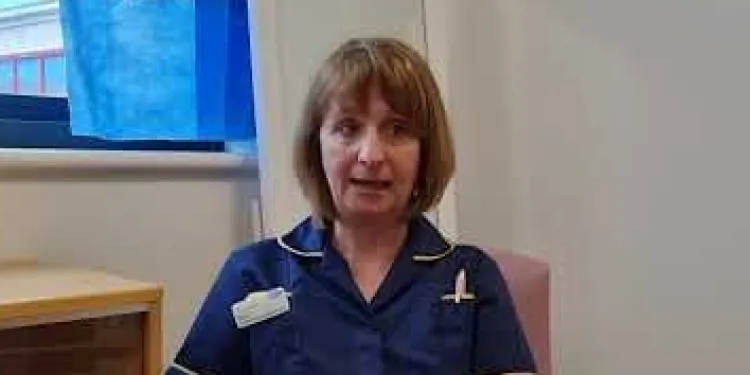
Ovarian cancer - signs and symptoms to look out for
Relevance: 77%
-

What is Bowel Cancer?
Relevance: 73%
-

How is bowel cancer diagnosed?
Relevance: 69%
-
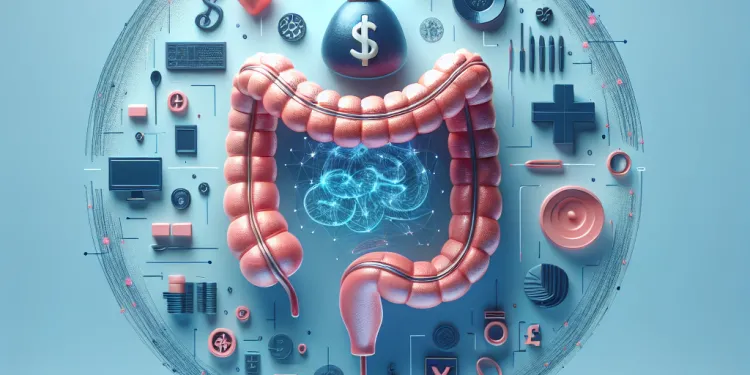
How common is bowel cancer?
Relevance: 68%
-
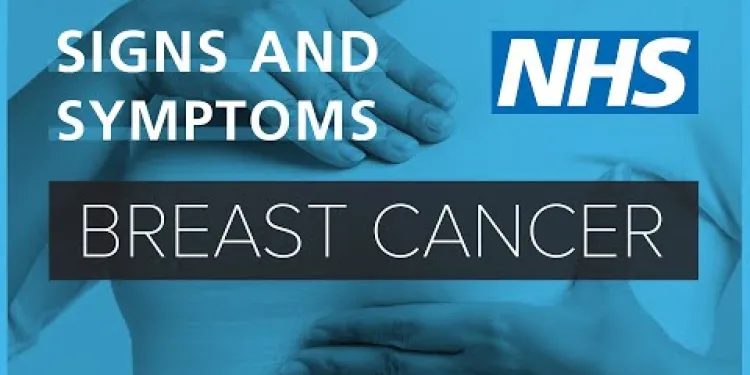
About Breast cancer - signs and symptoms | NHS
Relevance: 67%
-

Can bowel cancer be prevented?
Relevance: 67%
-
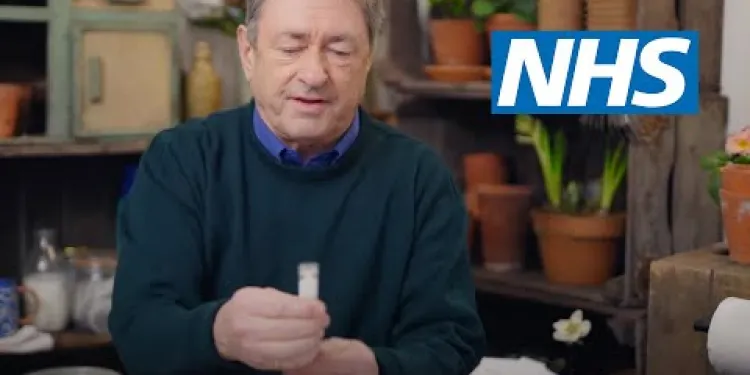
Bowel cancer screening: Alan Titchmarsh and Tommy Walsh | NHS
Relevance: 65%
-

Why is there a surge in bowel cancer?
Relevance: 65%
-

What are the risk factors for bowel cancer?
Relevance: 64%
-
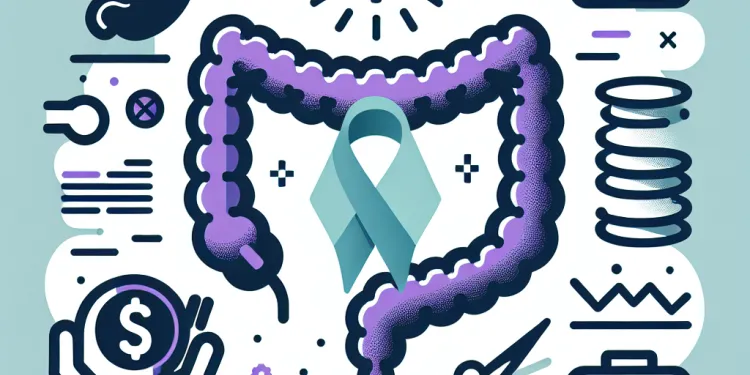
What is the survival rate for bowel cancer?
Relevance: 63%
-

How to do the FIT bowel cancer screening test | Cancer Research UK
Relevance: 63%
-

Can bowel cancer spread to other parts of the body?
Relevance: 62%
-

Can lifestyle changes help reduce bowel cancer risk?
Relevance: 62%
-
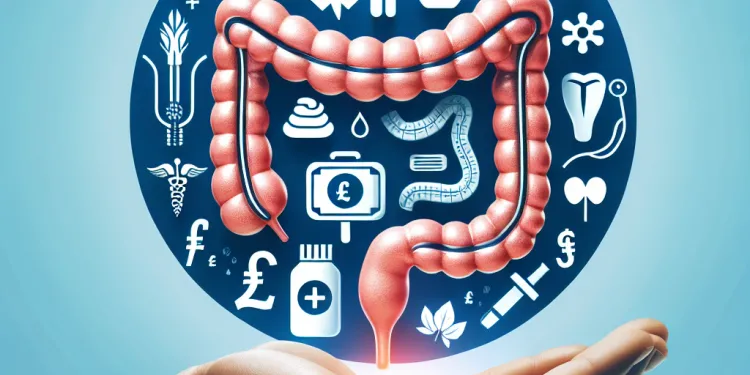
What are the side effects of bowel cancer treatment?
Relevance: 62%
-

Are younger people being diagnosed with bowel cancer more frequently?
Relevance: 62%
-

Is diet linked to the rise in bowel cancer?
Relevance: 61%
-

Bowel Cancer
Relevance: 60%
-
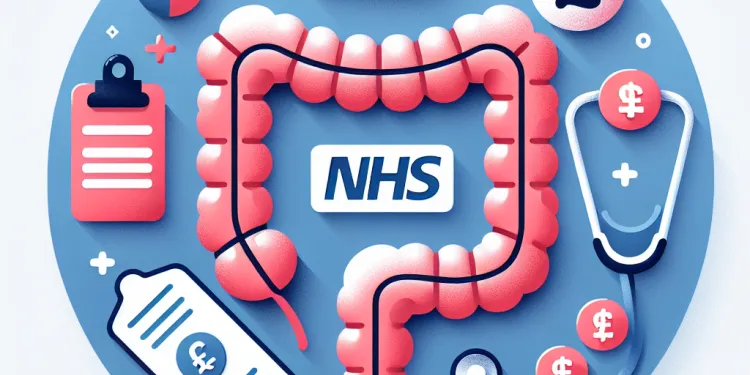
What treatment options are available for bowel cancer?
Relevance: 60%
-

Are there specific benefits of exercise for bowel cancer survivors?
Relevance: 60%
-

How is the stage of bowel cancer determined?
Relevance: 59%
-

How does increased screening impact bowel cancer statistics?
Relevance: 59%
-
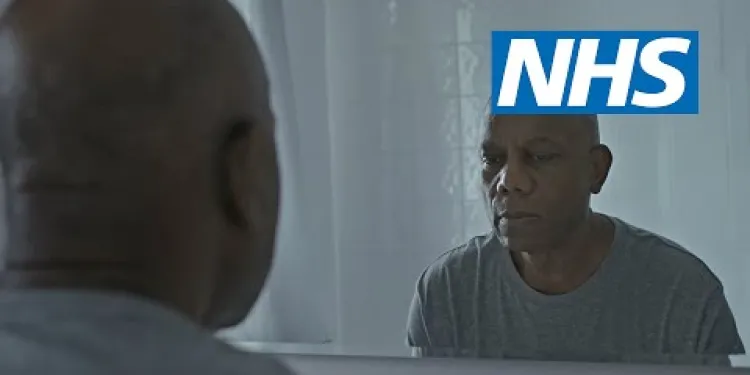
Worried about signs that could be cancer? Contact your GP practice | NHS
Relevance: 59%
-
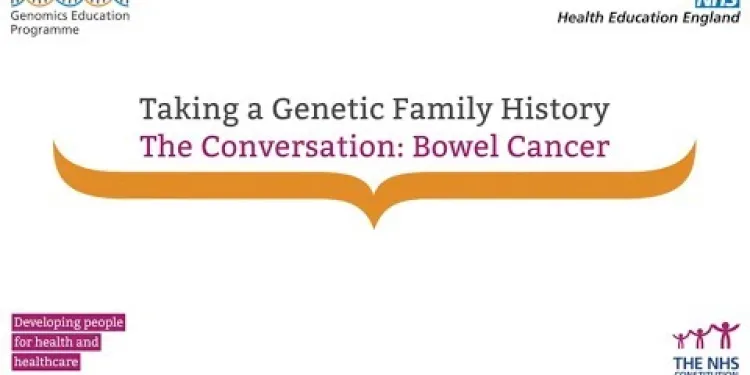
Taking a Genetic Family History - The Conversation (Bowel Cancer)
Relevance: 58%
-

What support is available for individuals diagnosed with bowel cancer?
Relevance: 58%
-
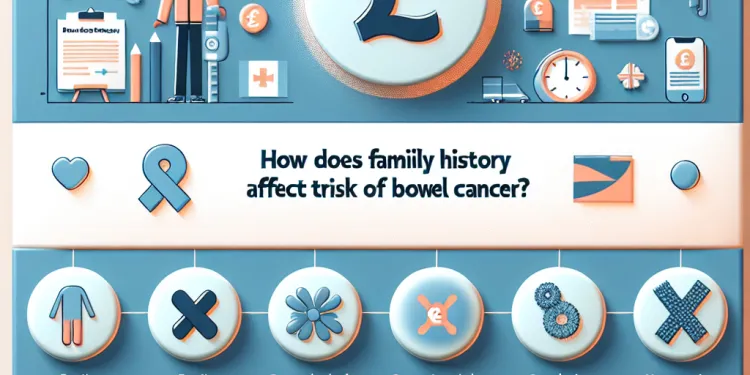
How does family history affect the risk of bowel cancer?
Relevance: 58%
-
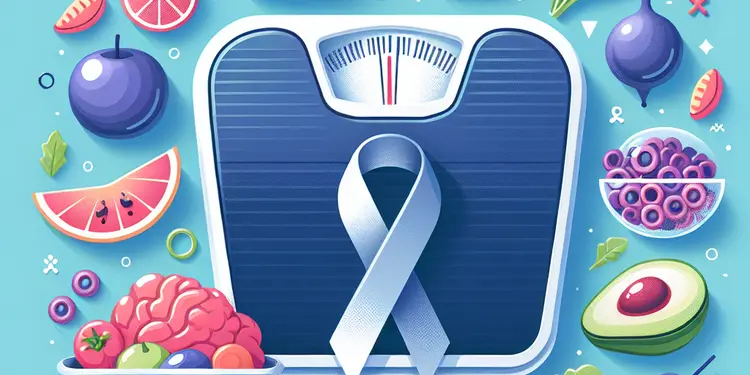
How does obesity affect bowel cancer rates?
Relevance: 58%
-

Symptoms of irritable bowel syndrome (IBS)
Relevance: 58%
-

What types of exercise are beneficial for bowel cancer patients?
Relevance: 58%
-

What lifestyle changes can help lower the risk of bowel cancer?
Relevance: 57%
-

How does exercise impact bowel cancer progression?
Relevance: 57%
-

What factors are contributing to the increase in bowel cancer cases?
Relevance: 57%
-

Can exercise help slow down the progression of bowel cancer?
Relevance: 56%
-

Can exercise help slow down the progression of bowel cancer?
Relevance: 55%
-

What role does diet play in the risk of developing bowel cancer?
Relevance: 55%
-

What role does alcohol consumption play in bowel cancer risk?
Relevance: 55%
-
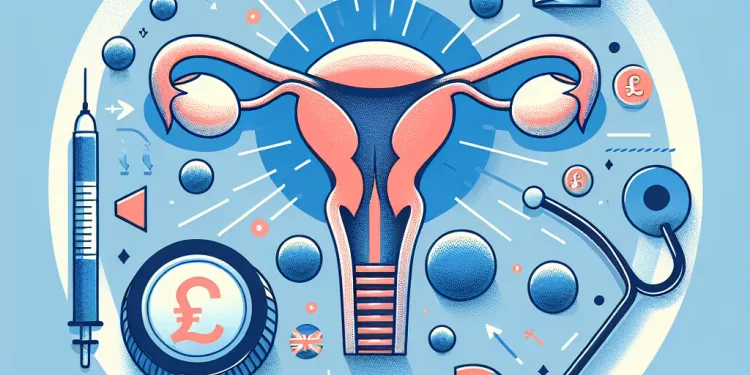
What are the symptoms of testicular cancer?
Relevance: 54%
-

Can exercise help with symptoms of bowel cancer treatment?
Relevance: 54%
-

Leukaemia: What are the signs and symptoms? | NHS
Relevance: 52%
Bowel Cancer
Bowel cancer, also known as colorectal cancer, is a type of cancer that begins in the colon or rectum. It often starts as a growth called a polyp, which may or may not be cancerous. Over time, some polyps can become cancerous. Bowel cancer is one of the most common types of cancer worldwide.
Here are some key points about bowel cancer:
1. **Symptoms**: Symptoms of bowel cancer can include changes in bowel habits (such as diarrhea or constipation), blood in the stool, abdominal pain or discomfort, unexplained weight loss, fatigue, and a feeling of incomplete bowel emptying.
2. **Risk factors**: Several factors can increase the risk of developing bowel cancer, including age (risk increases with age), a personal or family history of bowel cancer or polyps, inflammatory bowel disease (such as Crohn's disease or ulcerative colitis), a diet high in red or processed meats, obesity, smoking, excessive alcohol consumption, and sedentary lifestyle.
3. **Screening**: Screening for bowel cancer is important for early detection and prevention. Common screening methods include fecal occult blood tests (FOBT), sigmoidoscopy, colonoscopy, and stool DNA tests. These tests can detect cancer or precancerous polyps when treatment is most effective.
4. **Treatment**: Treatment for bowel cancer depends on various factors, including the stage of the cancer, its location, and the individual's overall health. Treatment options may include surgery to remove the cancerous tissue, chemotherapy, radiation therapy, targeted therapy, and immunotherapy.
5. **Prevention**: While some risk factors for bowel cancer, such as age and family history, cannot be changed, there are steps individuals can take to reduce their risk. These include maintaining a healthy weight, adopting a diet rich in fruits, vegetables, and whole grains while limiting red and processed meats, exercising regularly, avoiding smoking, moderating alcohol intake, and undergoing regular screening as recommended by healthcare professionals.
Early detection and prompt treatment can significantly improve outcomes for people with bowel cancer. Therefore, it's important to be aware of the symptoms, risk factors, and screening recommendations, and to seek medical attention if you have concerns or experience any symptoms associated with bowel cancer.
What is anal cancer
Anal cancer is a relatively rare type of cancer that develops in the tissues of the anus, the opening at the end of the digestive tract. Most anal cancers are squamous cell carcinomas, arising from the cells lining the anal canal. Risk factors include infection with certain strains of human papillomavirus (HPV), a weakened immune system, anal intercourse, smoking, and older age. Symptoms may include anal pain, bleeding, itching, changes in bowel habits, and lumps near the anus. Diagnosis typically involves a physical examination, imaging tests, and a biopsy of abnormal tissue. Treatment options include surgery, radiation therapy, chemotherapy, and targeted therapy. With prompt diagnosis and appropriate treatment, the prognosis for anal cancer is generally favorable, especially when detected at an early stage.
Bowel Cancer: Symptoms and Signs to Look Out For
Introduction
Bowel cancer, also referred to as colorectal cancer, is a type of cancer that begins in the large bowel, which includes the colon and the rectum. Awareness of its symptoms can significantly enhance early diagnosis and treatment outcomes. This information is especially pertinent for residents of the United Kingdom, where bowel cancer is among the most common types of cancer.
Common Symptoms of Bowel Cancer
Understanding and recognizing the common symptoms of bowel cancer is crucial for early detection. Here are some of the primary signs:
- Changes in Bowel Habits: Persistent changes in bowel habits, such as diarrhea, constipation, or a change in the consistency of your stool, could indicate bowel cancer.
- Blood in Stool: One of the more alarming signs is the presence of blood in your stool, which should never be ignored.
- Abdominal Pain: Persistent abdominal discomfort, cramps, gas or pain could be a symptom of bowel cancer.
- Unexplained Weight Loss: Sudden, unexplained weight loss can be a sign of many types of cancers, including bowel cancer.
Less Common Symptoms
While less common, these symptoms can also indicate the presence of bowel cancer:
- Feeling That Your Bowel Doesn’t Empty Completely: A persistent feeling that your bowels do not empty properly could be indicative of a blockage or other issues related to bowel cancer.
- Fatigue and Weakness: Persistent fatigue and weakness that do not improve with rest could be a symptom due to the cancer causing internal bleeding and leading to anemia.
- Unusual Bowel Movements: Experiencing unusual stools, such as those that are very narrow or 'ribbon-like' in shape, can sometimes be a sign.
Importance of Screening
The National Health Service (NHS) offers bowel cancer screening to help detect the disease in its early stages. For those aged 60 to 74, a Faecal Immunochemical Test (FIT) is sent every two years to your home to detect hidden blood in the stool. Early detection through screening can save lives, making it crucial for eligible individuals to participate.
When to See a Doctor
If you experience any of these symptoms, it is essential to consult your GP promptly. Early detection of bowel cancer significantly improves the effectiveness of treatments and the likelihood of a positive outcome.
Conclusion
Being aware of the symptoms and signs of bowel cancer can facilitate early diagnosis and treatment. If you notice any persistent changes in your bowel habits or other related symptoms, don't hesitate to seek medical advice. Regular screening is equally important, so take advantage of the NHS screening programs available to you.
Bowel Cancer
Bowel cancer, also called colorectal cancer, starts in the colon or rectum. It often begins as a small growth called a polyp. Not all polyps turn into cancer, but some can. Bowel cancer is one of the most common cancers in the world.
Here are some important things to know about bowel cancer:
1. **Symptoms**: Signs of bowel cancer can be changes in how often you go to the toilet (like having diarrhea or being constipated), blood in your poop, tummy pain, unexpected weight loss, feeling very tired, and feeling like your bowels haven't fully emptied.
2. **Risk factors**: Things that can make you more likely to get bowel cancer include getting older, having family or personal history of bowel cancer or polyps, diseases like Crohn's or colitis, eating a lot of red or processed meat, being overweight, smoking, drinking too much alcohol, and not moving around much.
3. **Screening**: It's important to get checked for bowel cancer to find it early. Tests like checking your poop for blood, sigmoidoscopy, colonoscopy, and stool DNA tests can help find cancer or polyps early when they're easiest to treat.
4. **Treatment**: How bowel cancer is treated depends on where it is, how big it is, and your health. Treatment might include surgery to take out the cancer, and other treatments like drugs or radiation to kill cancer cells.
5. **Prevention**: While you can't change things like your age or family history, you can lower your risk. Stay at a healthy weight, eat lots of fruits, vegetables, and whole grains, limit red and processed meats, exercise often, don't smoke, drink little alcohol, and get checked regularly for bowel cancer.
Seeing a doctor early if you have signs of bowel cancer can help a lot. Be sure to know what the signs are and get checked if you have any of them. This can really help if you catch it early.
What is Anal Cancer
Anal cancer is not very common. It starts in the tissues of the anus, which is the opening at the end of your digestive system. Most anal cancers come from cells lining the anal canal. You are more at risk if you have certain infections like HPV, a weak immune system, have anal sex, smoke, or are older. Signs include pain, bleeding, itching around the anus, changes in bowel habits, and lumps near the anus. To diagnose it, doctors do a physical check, look at images of the area, and take a small tissue sample (biopsy). Treatment options include surgery, radiation, and medicine. If found early and treated well, the chance of getting better from anal cancer is usually good.
Bowel Cancer: Symptoms and Signs to Look Out For
Introduction
Bowel cancer is a type of cancer that starts in the large bowel, which includes the colon and rectum. Knowing its symptoms can help find and treat it early. This is very important for people in the UK, where bowel cancer is common.
Common Symptoms of Bowel Cancer
Recognizing the signs of bowel cancer early can help. Here are some common symptoms:
- Changes in Bowel Habits: If you have ongoing changes like diarrhea, constipation, or different stool consistency, it could be a sign.
- Blood in Stool: Seeing blood in your stool is serious. Don't ignore it.
- Abdominal Pain: Regular pain, cramps, or discomfort in your belly could be a symptom.
- Unexplained Weight Loss: Losing weight quickly without trying might be a sign of cancer.
Less Common Symptoms
These symptoms happen less often but can also show bowel cancer:
- Feeling That Your Bowel Doesn’t Empty Completely: If you feel like you can't empty your bowels, it could mean there's a problem.
- Fatigue and Weakness: Feeling very tired and weak, even after rest, might mean internal bleeding causing anemia.
- Unusual Bowel Movements: If your stools look different, like very thin or 'ribbon-like', it could be a sign.
Importance of Screening
The NHS helps find bowel cancer early with screening. If you're 60 to 74, you'll get a test at home every two years to check for hidden blood. Joining the screening can save lives.
When to See a Doctor
If you have any of these symptoms, see your doctor quickly. Finding bowel cancer early makes treatments work better.
Conclusion
Knowing the symptoms of bowel cancer can help find it early. If you notice changes in your bowel habits or other signs, get medical help. Regular screening is also important, so join the NHS screening programs if you can.
Frequently Asked Questions
What are the common symptoms of bowel cancer?
Common symptoms of bowel cancer include persistent changes in bowel habits, such as diarrhoea or constipation, blood in the stool, abdominal pain, and unexplained weight loss.
What are the less common symptoms of bowel cancer?
Less common symptoms can include tiredness, bloating, a feeling that your bowel doesn’t empty completely, and a lump in the abdomen or rectum.
Who is at risk of developing bowel cancer?
People over 50, those with a family history of bowel cancer, individuals with certain genetic conditions, and people with inflammatory bowel diseases like Crohn’s disease or ulcerative colitis are at higher risk.
Can bowel cancer be detected early?
Yes, early detection is possible through screening programmes like the NHS Bowel Cancer Screening Programme, which offers tests to detect cancer early when treatment is more likely to be effective.
How can I reduce my risk of bowel cancer?
You can reduce your risk by maintaining a healthy lifestyle, which includes a balanced diet high in fibre, regular exercise, limiting alcohol, not smoking, and maintaining a healthy weight.
What is the NHS Bowel Cancer Screening Programme?
The NHS Bowel Cancer Screening Programme offers regular bowel cancer screening for adults aged 60 to 74. It involves a home testing kit to detect blood in the stool.
How often should I get screened for bowel cancer?
In the UK, it's recommended for adults aged 60 to 74 to get screened every two years with a home testing kit provided by the NHS Bowel Cancer Screening Programme.
What should I do if I notice symptoms of bowel cancer?
If you notice symptoms such as changes in bowel habits or blood in your stool, you should contact your GP as soon as possible for further evaluation.
Is abdominal pain always a sign of bowel cancer?
Abdominal pain can be a symptom of many different conditions, not just bowel cancer. However, persistent pain should be evaluated by a doctor to rule out serious conditions.
What types of tests are used to diagnose bowel cancer?
Diagnosis of bowel cancer typically involves a combination of a physical exam, blood tests, endoscopy (colonoscopy or sigmoidoscopy), and imaging tests such as CT or MRI scans.
What is the treatment for bowel cancer?
Treatment for bowel cancer usually involves a combination of surgery, chemotherapy, and radiotherapy. The specific treatment plan depends on the stage and location of the cancer.
Can a healthy diet help prevent bowel cancer?
Yes, a diet high in fibre, fruits, and vegetables, and low in red and processed meats can help lower the risk of developing bowel cancer.
Is genetic testing available for bowel cancer risk?
Genetic testing is available for those with a family history of bowel cancer to identify specific genetic mutations that may increase the risk. Consult with your GP for more information.
What are the stages of bowel cancer?
Bowel cancer is typically staged from 0 to 4, with 0 being the earliest stage (cancer in situ) and 4 indicating advanced cancer that has spread to other parts of the body.
What lifestyle changes can support bowel cancer treatment and recovery?
Maintaining a healthy diet, staying physically active, managing stress, avoiding tobacco, and limiting alcohol intake can support treatment and recovery from bowel cancer.
What signs show you might have bowel cancer?
Here are some things to watch for:
- Tummy hurts a lot.
- Pooing more or less than usual.
- Poo looks different, like runny or hard.
- Blood in your poo or when you wipe.
- Feeling very tired.
- Losing weight without trying.
If you notice these signs, tell an adult or see a doctor. Using a diary to track your tummy troubles can help. Ask someone you trust to go with you to the doctor.
Bowel cancer can make you feel different. You might go to the toilet more or less often. You might have runny poo (diarrhoea) or find it hard to poo (constipation). You might see blood in your poo. Your tummy might hurt. You might lose weight and not know why.
If you have trouble reading, you can ask someone to help you or use a tool that reads out loud.
What are some rare signs of bowel cancer?
Bowel cancer can have different signs. Some signs are not common. Here are some rare signs of bowel cancer:
- Tummy pain that does not go away
- Weight loss without trying
- Feeling very tired all the time
- A lump in your tummy
If you notice these signs, talk to a doctor.
For help understanding or remembering this information, you can:
- Ask someone you trust to explain it
- Use pictures to help you understand
- Write down any questions you have
Some other signs might be feeling very tired, having a swollen tummy, feeling like you still need to go to the toilet after you've just been, or finding a bump in your belly or bottom.
Who might get bowel cancer?
Some people might get bowel cancer more easily than others.
Here are some reasons why:
- If you are older, you might have more risk.
- If someone in your family has had bowel cancer, you might have more risk too.
- If you eat a lot of junk food and not many fruits and veggies, your risk might go up.
- If you don't exercise and are often sitting, it's not good for your bowels.
Remember, if you are worried, it's good to talk to a doctor. They can help check if you are healthy.
Tools like picture cards, videos, or audiobooks can help you understand better.
Some people have a higher chance of getting bowel cancer. This includes:
- People who are more than 50 years old.
- People whose family members had bowel cancer.
- People with certain health conditions in their genes.
- People with bowel problems like Crohn's disease or ulcerative colitis.
Using pictures or diagrams can help you understand better. You can also ask a friend or a family member to explain it to you.
Can we find bowel cancer early?
We can find bowel cancer early. This means finding it before it gets worse.
Here is how we can find bowel cancer early:
- Go to the doctor for check-ups.
- Take tests that look for cancer.
Ask someone to help you understand the tests. This helps you feel better.
Yes, we can find bowel cancer early with special tests. These tests are part of a program called the NHS Bowel Cancer Screening Programme. When we find cancer early, it is easier to treat.
How can I lower my risk of getting bowel cancer?
You can stay healthy by doing some easy things. Eat good foods with lots of fiber. Exercise often, like playing or walking. Don't drink too much alcohol. It's best not to smoke. Try to stay the right weight for your body.
What is the NHS Bowel Cancer Screening Programme?
The NHS Bowel Cancer Screening Programme checks for bowel cancer. Bowel cancer can make you very sick. Finding it early can help you get better faster.
The programme is for adults. It helps find cancer before you feel sick. You may receive a kit in the mail to do the test at home.
Ask someone you trust to help you if you find the test difficult to do by yourself. You can also talk to a doctor or nurse to learn more about the test.
Remember, the earlier you find cancer, the better your chance to get well.
The NHS has a program to check for bowel cancer. It's for adults aged 60 to 74. You get a test kit to use at home. It can find blood in poo.
How often should I get screened for bowel cancer?
How often should I have a test to check for bowel cancer?
In the UK, adults who are 60 to 74 years old should check for bowel cancer every two years. They can do this at home with a kit from the NHS Bowel Cancer Screening Programme.
What should I do if I see signs of bowel cancer?
If you see signs that might mean you have bowel cancer, go and talk to your doctor. They can help find out what is wrong.
Some signs to watch for are:
- Pooing more often or having loose poo
- Blood in your poo
- Stomach pain or cramps that do not go away
- Feeling very tired all the time
- Losing weight without trying
If you have these signs for more than a few weeks, it's important to tell a doctor.
Here are some tools to help you:
- Ask someone you trust to go to the appointment with you.
- Write down your signs so you don't forget them.
- Use a calendar to keep track of how long you've had the signs.
If you see changes in how often you go to the toilet or find blood when you poo, tell your doctor quickly. They can help you find out what is happening.
Does belly pain always mean bowel cancer?
No, belly pain does not always mean you have bowel cancer. There are many reasons you might have pain in your belly. It is important to see a doctor if you are worried. They can help find out what's wrong.
Here are some things that might help you:
- Write down when the pain happens and how it feels.
- Ask someone you trust to go with you to the doctor.
- Use pictures or charts to help explain how you feel.
Tummy pain can happen for lots of reasons, not just because of bowel cancer. But if the pain doesn’t go away, it's important to see a doctor. The doctor can check if something serious is causing the pain.
How do doctors check for bowel cancer?
Doctors use tests to see if someone has bowel cancer. These tests can help find cancer early. Here are some common tests:
- Stool Test: You poop in a special container. The poop is checked for blood, which can be a sign of cancer.
- Colonoscopy: A doctor looks inside your bowel with a tiny camera. This test helps the doctor see if there are any problems.
- CT Scan: A computer takes pictures of your bowel and helps doctors see any changes.
People can use simple tools to help with tests. For example, ask someone you trust to explain the tests or go with you to the doctor.
Doctors find bowel cancer using a few different checks. They check your body, take a blood test, and look inside your tummy with a special camera (called a colonoscopy or sigmoidoscopy). They also use special pictures like CT or MRI scans to look inside your body.
If these words are tricky, try listening to them read aloud with a text-to-speech app, or ask someone you trust to help explain.
How do we treat bowel cancer?
If someone has bowel cancer, doctors have special ways to help them get better. Here are some ways they might treat it:
- Surgery: Doctors can do an operation to take out the cancer.
- Chemotherapy: This is medicine that can help kill cancer cells.
- Radiotherapy: This is a strong beam that kills cancer cells.
It's important to ask doctors questions if you do not understand. You can also use pictures or simple words to help you understand better. Talking to someone who can explain things simply, like a family member or friend, can be helpful too.
If someone has bowel cancer, they often need surgery, medicine, and special X-ray treatments. What doctors do depends on how big the cancer is and where it is inside the body.
Can eating healthy food stop bowel cancer?
Eating lots of fruits, vegetables, and foods with fiber is good for your tummy. Eating less red and processed meat can help stop a bad sickness called bowel cancer.
Try using colorful charts or lists to remember which foods are good for you.
Can a test show if I might get bowel cancer?
If people in your family have had bowel cancer, you can get a special test. This test looks at your genes to see if you have changes that might make you get sick too. Talk to your doctor to learn more and find out what to do next.
What are the steps of bowel cancer?
Bowel cancer grows in steps. Here is what happens:
Step 1: Small growths called polyps appear inside the bowel.
Step 2: These polyps can turn into cancer over time.
Step 3: If cancer spreads, it moves to the wall of the bowel.
Step 4: Cancer can spread to other parts of the body.
It is important to see a doctor for tests. This helps catch cancer early. Using simple tools like picture cards or talking with a helper can also make it easier to understand and remember this information.
Bowel cancer is split into stages from 0 to 4. Stage 0 is the first stage and means the cancer is in the very early stages. Stage 4 means the cancer has moved to other parts of the body and is more serious.
How can you change your life to help get better from bowel cancer?
Eating healthy food, doing exercise, staying calm, not smoking, and drinking little alcohol can help you get better from bowel cancer.
Useful Links
This website offers general information and is not a substitute for professional advice.
Always seek guidance from qualified professionals.
If you have any medical concerns or need urgent help, contact a healthcare professional or emergency services immediately.
- Ergsy carfully checks the information in the videos we provide here.
- Videos shown by Youtube after a video has completed, have NOT been reviewed by ERGSY.
- To view, click the arrow in centre of video.
- Most of the videos you find here will have subtitles and/or closed captions available.
- You may need to turn these on, and choose your preferred language.
- Go to the video you'd like to watch.
- If closed captions (CC) are available, settings will be visible on the bottom right of the video player.
- To turn on Captions, click settings .
- To turn off Captions, click settings again.
More Items From Ergsy search
-

Bowel cancer - Symptoms and signs to look out for
Relevance: 100%
-

Learn about bowel cancer (British Sign Language version)
Relevance: 79%
-

Ovarian cancer - signs and symptoms to look out for
Relevance: 77%
-

What is Bowel Cancer?
Relevance: 73%
-

How is bowel cancer diagnosed?
Relevance: 69%
-

How common is bowel cancer?
Relevance: 68%
-

About Breast cancer - signs and symptoms | NHS
Relevance: 67%
-

Can bowel cancer be prevented?
Relevance: 67%
-

Bowel cancer screening: Alan Titchmarsh and Tommy Walsh | NHS
Relevance: 65%
-

Why is there a surge in bowel cancer?
Relevance: 65%
-

What are the risk factors for bowel cancer?
Relevance: 64%
-

What is the survival rate for bowel cancer?
Relevance: 63%
-

How to do the FIT bowel cancer screening test | Cancer Research UK
Relevance: 63%
-

Can bowel cancer spread to other parts of the body?
Relevance: 62%
-

Can lifestyle changes help reduce bowel cancer risk?
Relevance: 62%
-

What are the side effects of bowel cancer treatment?
Relevance: 62%
-

Are younger people being diagnosed with bowel cancer more frequently?
Relevance: 62%
-

Is diet linked to the rise in bowel cancer?
Relevance: 61%
-

Bowel Cancer
Relevance: 60%
-

What treatment options are available for bowel cancer?
Relevance: 60%
-

Are there specific benefits of exercise for bowel cancer survivors?
Relevance: 60%
-

How is the stage of bowel cancer determined?
Relevance: 59%
-

How does increased screening impact bowel cancer statistics?
Relevance: 59%
-

Worried about signs that could be cancer? Contact your GP practice | NHS
Relevance: 59%
-

Taking a Genetic Family History - The Conversation (Bowel Cancer)
Relevance: 58%
-

What support is available for individuals diagnosed with bowel cancer?
Relevance: 58%
-

How does family history affect the risk of bowel cancer?
Relevance: 58%
-

How does obesity affect bowel cancer rates?
Relevance: 58%
-

Symptoms of irritable bowel syndrome (IBS)
Relevance: 58%
-

What types of exercise are beneficial for bowel cancer patients?
Relevance: 58%
-

What lifestyle changes can help lower the risk of bowel cancer?
Relevance: 57%
-

How does exercise impact bowel cancer progression?
Relevance: 57%
-

What factors are contributing to the increase in bowel cancer cases?
Relevance: 57%
-

Can exercise help slow down the progression of bowel cancer?
Relevance: 56%
-

Can exercise help slow down the progression of bowel cancer?
Relevance: 55%
-

What role does diet play in the risk of developing bowel cancer?
Relevance: 55%
-

What role does alcohol consumption play in bowel cancer risk?
Relevance: 55%
-

What are the symptoms of testicular cancer?
Relevance: 54%
-

Can exercise help with symptoms of bowel cancer treatment?
Relevance: 54%
-

Leukaemia: What are the signs and symptoms? | NHS
Relevance: 52%


